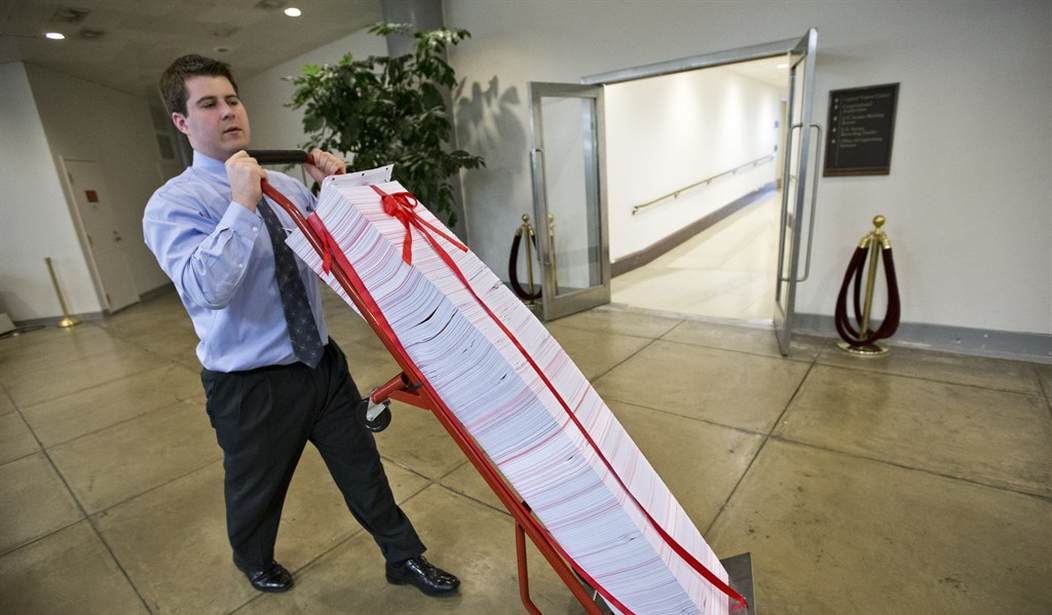All across the globe, people see the United States as a land of opportunity and dream of making their way here to work hard and enjoy the prosperity that our system of laws helps provide. Cindy Vong made that dream a reality by emigrating from Vietnam, becoming a U.S. citizen, and starting her own nail salon in Gilbert, Arizona. Thanks to a state occupational-licensing scheme, however, Ms. Vong may no longer be free to pursue her vision of happiness.
The Arizona Board of Cosmetology—yes, that’s an actual entity—got wind that Ms. Vong’s spa offered a treatment that uses small fish to exfoliate dead skin from the feet. This is a perfectly safe practice popular in East Asia and the Middle East. Learning that the Board intended to apply its exfoliation-instrument sterilization standards to her fish—how does one sterilize a fish?—Ms. Vong volunteered her spa as a test project until the Board was able to revise its existing rules to address this increasingly popular treatment. Without so much as bothering to evaluate whether the fish treatment is unsafe—there is no such evidence anywhere—the Board ignored her request and, summarily concluding the treatment unsafe, shut down Ms. Vong’s business. So much for “Land of the Free.”
Represented by our friends at the Goldwater Institute, Ms. Vong fought back, bringing a constitutional challenge against the Board’s action all the way to Arizona’s high court. Unfortunately, that court deferred to the Board’s “safety” concerns, finding there to be a “reasonably conceivable state of facts that could provide a rational basis” for the regulation. In other words, because a state-empowered group of Ms. Vong’s competitors offered a better-than-completely-ridiculous pretext for telling her how to run her business, the court would entertain no legal challenge.
Recommended
Ms. Vong has now filed a petition asking the U.S. Supreme Court to hear her case and vindicate her right to earn an honest living. Cato and North Carolina’s Civitas Institute have filed a brief supporting her petition. We argue first that the Court should take the case to clarify that lower courts need not be willfully blind to the actual motives of state economic regulations. Second, this case offers the Court an opportunity to resolve a pressing circuit split regarding the use of total bans on certain kinds of economic activity. Finally, occupational licensure may deserve heightened scrutiny under the infamous Footnote Four of the New Deal case of Carolene Products (1938), which aims to protect against laws that rig the political process. Occupational licensing regulations rig the system by monopolizing state-licensed businesses, leaving no realistic political redress for individual entrepreneurs who go against the grain.
Indeed, occupational licensure is a rapidly growing phenomenon, and for a very understandable reason: it allows established business concerns to tell newcomers and outsiders how to do business and manage their own competition. This is often done in the name of “safety,” “consumer welfare,” or some other pretextual veil beyond which courts are loath to look solely because the individual freedoms implicated are economic. Yet these economic liberties make up a big part of individual autonomy and are a big reason why immigrants come to the United States—in turn strengthening our economy with their entrepreneurial spirit.
Just last week in North Carolina Board of Dental Examiners v. FTC—a case in which we also filed a brief—the Supreme Court showed that it isn’t totally blind to the damage occupational licensing can cause (albeit there it was in an antitrust context). We hope that the justices take this case and share with the lower courts what they themselves are starting to figure out: that occupational licensing is killing the American Dream.
The Supreme Court will decide this spring whether to take the case of Vong v. Aune.
























Join the conversation as a VIP Member